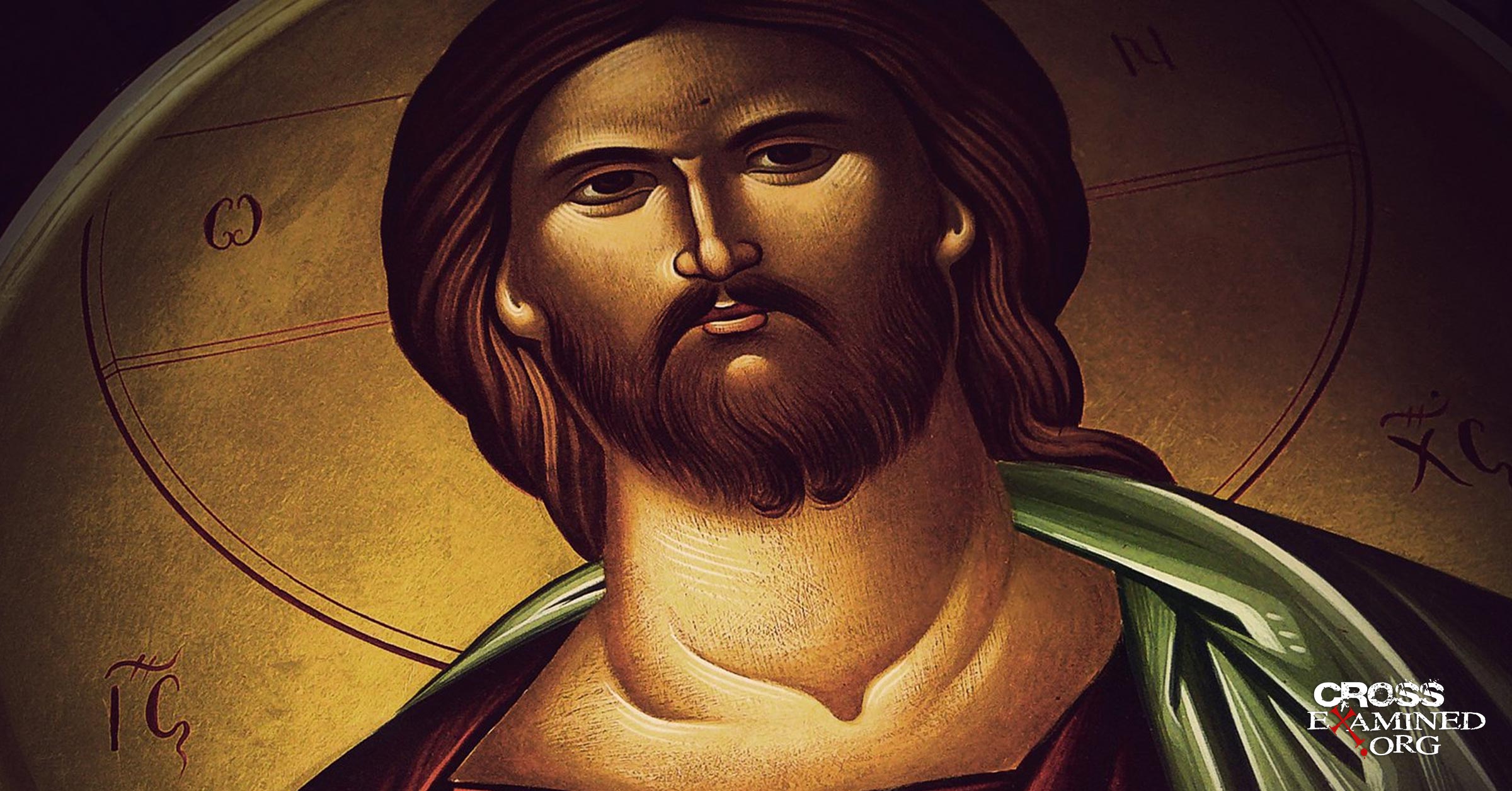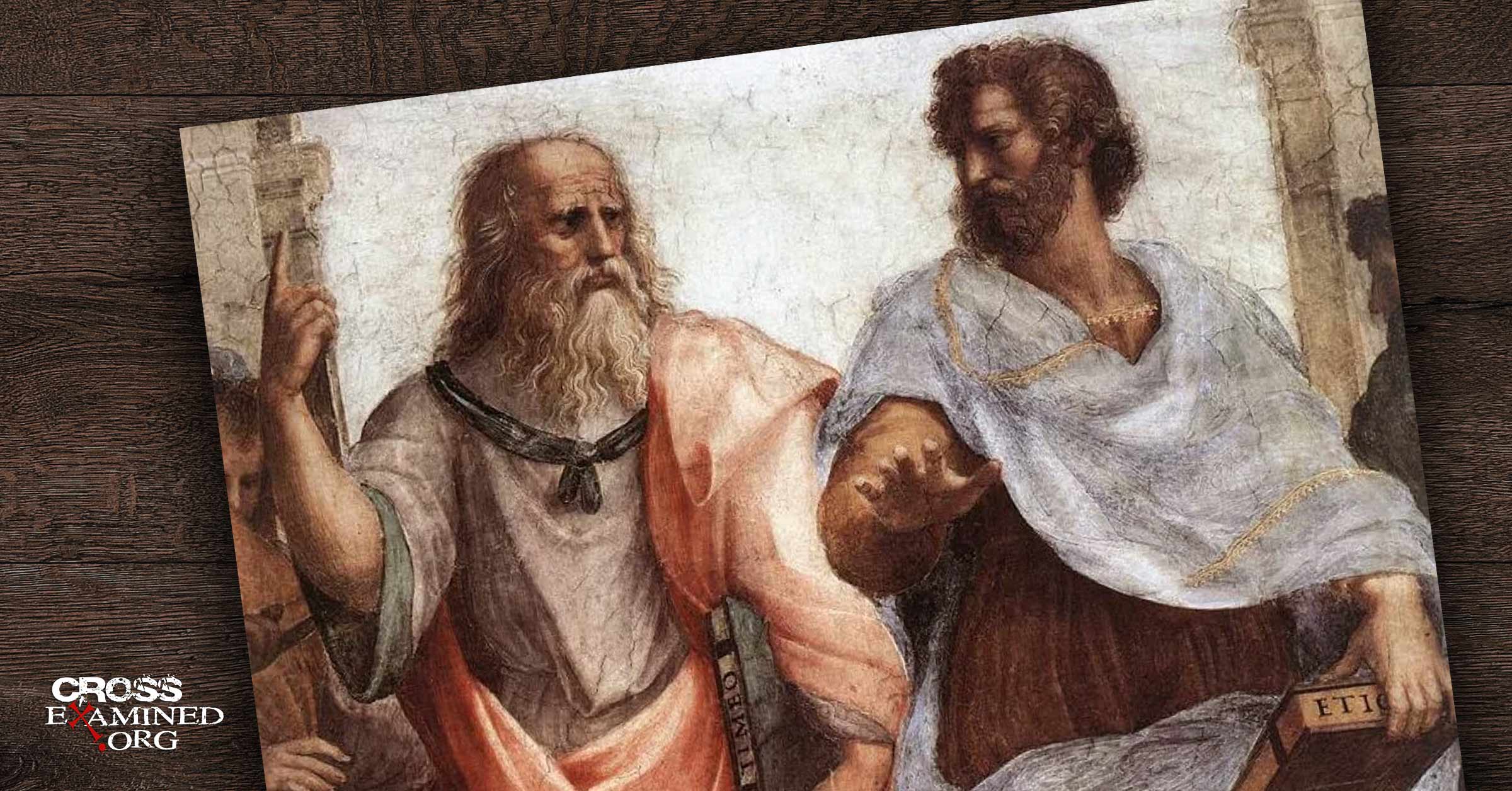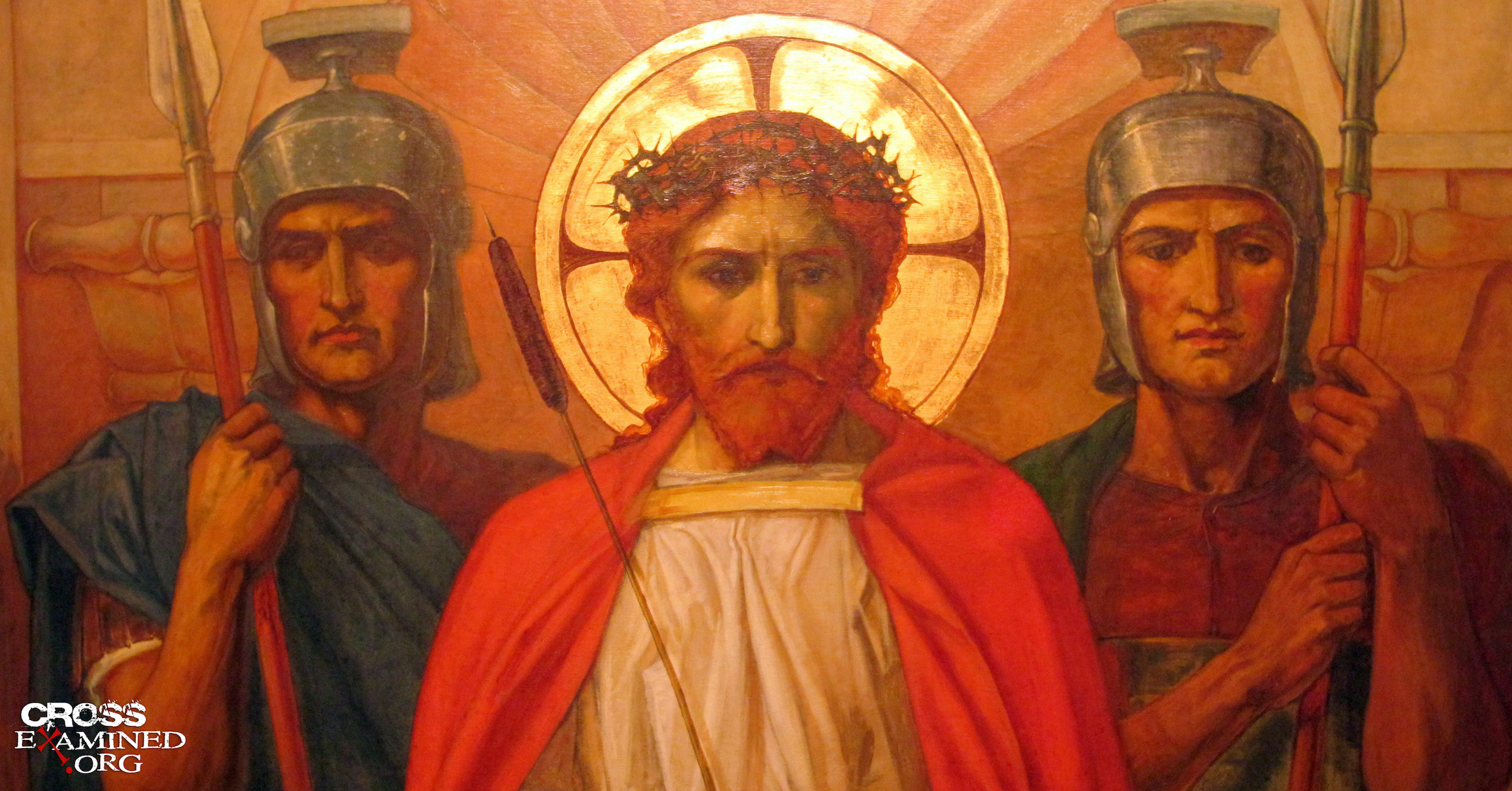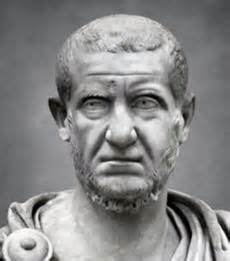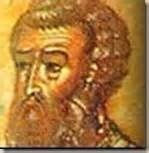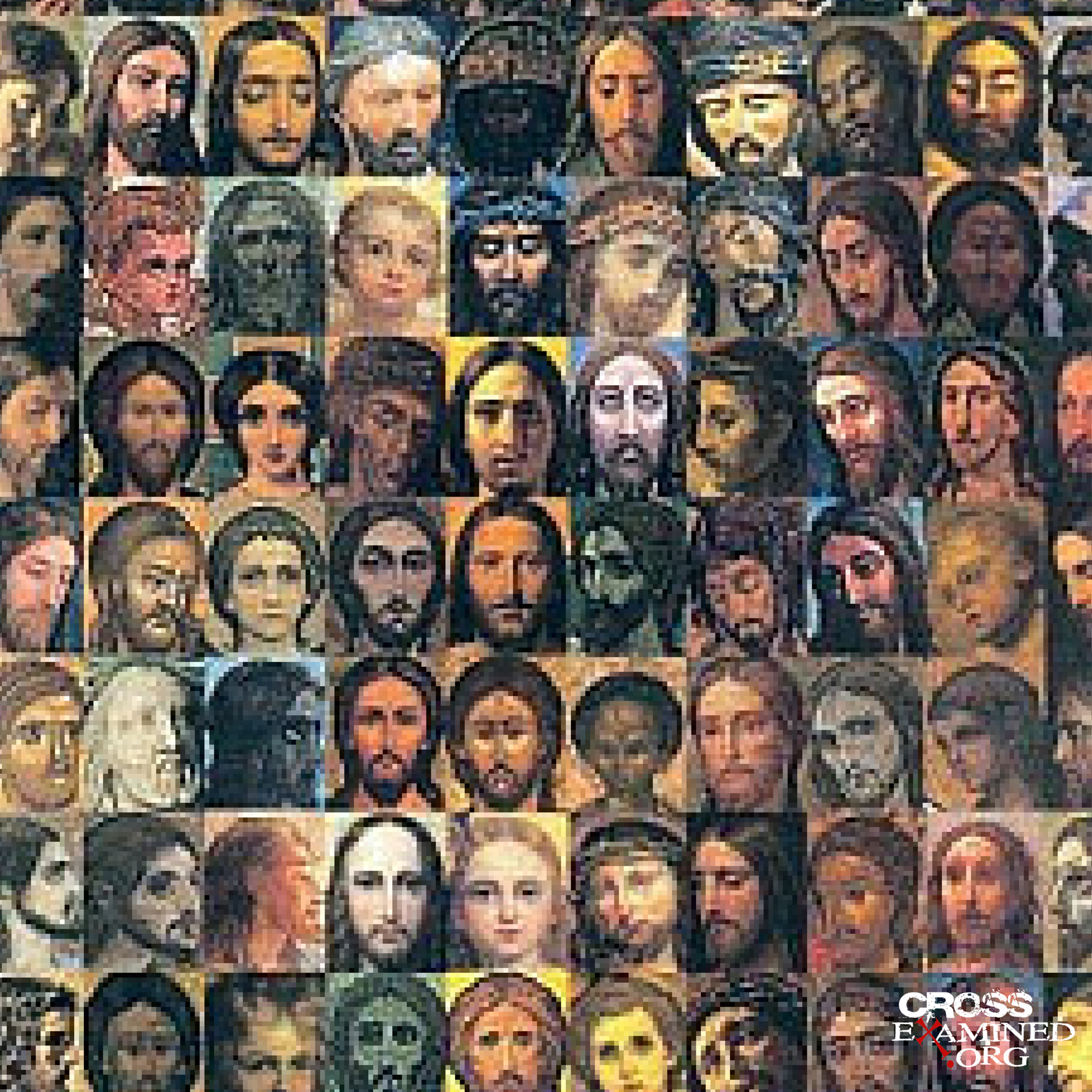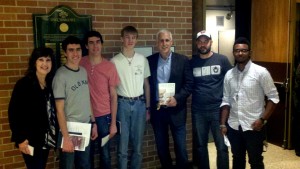This article picks up where the last article left off. We continue our glimpse at the early testimony for Jesus of Nazareth.
The Argument for the Early Dating of the Synoptic Gospels
The Gospels of Matthew, Mark, and Luke are all said to be the “Synoptic Gospels.” “Synoptic” means that they are seen through the same eye. These three Gospels tell the story of Jesus in a familiar fashion. Some have claimed that the Gospels all should have been written after AD 70 due to a prophecy given that relates to the destruction of the Temple (occurring in AD 70). However, many scholars are beginning to change their mindset concerning these dates.
J. Warner Wallace makes a compelling argument, an argument held by some New Testament scholars, that all three Synoptic Gospels must have been written prior to AD 63. Wallace argues that “The New Testament fails to describe the destruction of the Temple…The New Testament fails to describe the siege of Jerusalem [70 A.D.]…Luke said nothing about the deaths of Paul and Peter…Luke said nothing about the death of James [62 A.D.]…Luke’s Gospel predates the Book of Acts…Paul quoted Luke’s Gospel in his letter to Timothy.”[1] Therefore, since Acts is the sequel to the Gospel of Luke and does not mention the details that Wallace has noted, then it only stands to reason that Acts was written before AD 64 with Luke being written sometime prior to Acts. Since Luke uses Mark and Matthew, then it is feasible to claim that Mark and Matthew predate the writing of Luke. If Wallace is correct, then the Synoptic Gospels were all composed within 30 years of the crucifixion of Jesus of Nazareth. It would be comparable to currently writing about an event that transpired in 1986. With several eyewitnesses and with fond memories of the 80s, one could write a trustworthy account within that timeframe.
Even if one is not persuaded by Wallace’s argument, suffice it to say that there exist several early traditions in the Gospel texts that predate the New Testament. Even with the Gospel of John which is normally attributed to the late first-century, many scholars—including some liberal ones—hold that John reports traditions that fit well within the early the time of Christ. This includes the inclusion of a miracle by Jesus at one Pool of Bethesda. The Pool of Bethesda was destroyed prior to AD 70.[2]
Earliest New Testament Letters
Galatians
In addition to the previously listed material, one should note that many of the epistles listed in the New Testament canon are considered early. Consider the Paul’s letter to the Galatians. Gerald Peterman writes concerning Galatians that “Probably the letter should be dated to AD 49…Paul came to Christ probably around AD 35 and the events described in Gl 2:1-10 must have occurred before the letter was written. Therefore, the reference to ‘fourteen years’ (2:1) must be all-inclusive—that is, the ‘three years’ previously mentioned (1:18) plus 11 more. This yields AD 49 (35+14).”[3]
James
The letter of James is another early manuscript. While some date the letter to the latter first-century, an idea based upon the skepticism that James, the half-brother of Jesus, would not pen a work; many Bible scholars hold that James not only was written by the authentic James, the half-brother of Jesus, but that the work was extremely early. Kurt A. Richardson writes that “If the epistle’s author is James the Lord’s brother, then it was written before a.d. 62, perhaps in the previous decade. James is the only likely candidate for authorship, as, indeed, Christian tradition has affirmed.”[4] John F. Hart takes the date a step further. Hart holds that James was written extremely early since that the Epistle of James does not indicate any reference to the Jerusalem Council. Thus, Hart notes that “If the book was written before the Jerusalem Council (AD 49), the date of writing could be as early as AD 45-48 (most evangelicals). If the dispersion in 1:1 refers to the scattering of Jewish believers in Ac 8:1, dated at about AD 34, the book could have been written as early as AD 35-36. James is probably the first NT book written.”[5] If Hart is correct, then we have a reference to Jesus of Nazareth, that is “the Lord Jesus Christ” (James 1:1), as early as 2-5 years from the time that Jesus of Nazareth was crucified and resurrected!
1 Thessalonians
1 Thessalonians is another work that provides early testimony to Jesus of Nazareth. 1 Thessalonians, like Galatians, Romans, and the Corinthian letters, is one of the letters universally attested to Paul. 1 Thessalonians, the book that provides the eschatological concept of the Parousia, was most likely written around AD 51, a mere 18-21 years from the crucifixion and resurrection of Jesus of Nazareth. Kevin D. Zuber denotes that “Paul probably arrived before Gallio began his tenure in AD 50. He probably wrote 1 Thessalonians in early AD 51 and 2 Thessalonians later that same year. Although these two letters are among the earliest of Paul’s ‘canonical correspondence’ (only Galatians is earlier), the themes and issues reflect a mature faith and a consistency of doctrine.”[6]
Conclusion
This article has only scratched the surface of early testimony that one finds for Jesus of Nazareth. No other person in all of antiquity holds the early reliable testimony that Jesus of Nazareth enjoys. Those who are skeptical of the Christian faith may not accept the claims made about Jesus of Nazareth. However, if one is to be honest with the evidence, then one must admit that not only was Jesus of Nazareth an authentic person of history, but also that he was crucified and was thought to have resurrected from the dead from the outset of the Christian movement. This evidence holds such power that it was used by God not only to bring me back to a strong Christian faith, but also led me back into the Gospel ministry.
Next week, we will examine whether there exists eyewitness testimony for Jesus of Nazareth. Thus far, Jesus of Nazareth has passed the historical test with flying colors. Will Jesus continue to pass the historical test when we investigate eyewitness testimony?
Bibliography
Albright, W. F. Recent Discoveries in Bible Lands. New York: Funk & Wagnalls Company, 1955.
Habermas, Gary. The Historical Jesus: Ancient Evidence for the Life of Christ. Joplin, MO: College Press, 1996.
Licona, Michael R. The Resurrection of Jesus: A New Historiographical Approach. Downers Grove; Nottingham, UK: IVP Academic; Apollos, 2010.
Richardson, Kurt A. James. The New American Commentary. Volume 36. Nashville: Broadman & Holman Publishers, 1997.
Rydelnik, Michael, and Michael Vanlaningham, eds. The Moody Bible Commentary. Chicago: Moody Publishers, 2014.
Wallace, J. Warner. Cold-case Christianity: A Homicide Detective Investigates the Claims of the Gospels. Colorado Springs: David C. Cook, 2013.
Endnotes
[1] J. Warner Wallace, Cold-case Christianity: A Homicide Detective Investigates the Claims of the Gospels (Colorado Springs: David C. Cook, 2013), 161-163.
[2] In the 19th century, many scholars dismissed the Gospel of John as a late invention over this Pool of Bethesda. That is, until the Pool of Bethesda was excavated and discovered in the late 19th to early 20th century.
[3] Gerald Peterman, “Galatians,” in The Moody Bible Commentary, Michael Rydelnik and Michael Vanlaningham, eds (Chicago: Moody Publishers, 2014), 1827.
[4] Kurt A. Richardson, James, vol. 36, The New American Commentary (Nashville: Broadman & Holman Publishers, 1997), 39.
[5] John F. Hart, “James,” in The Moody Bible Commentary, Michael Rydelnik and Michael Vanlaningham, eds (Chicago: Moody Publishers, 2014), 1947.
[6] Kevin D. Zuber, “1 Thessalonians,” in The Moody Bible Commentary, Michael Rydelnik and Michael Vanlaningham, eds (Chicago: Moody Publishers, 2014), 1877.
Brian G. Chilton is the founder of BellatorChristi.com and is the host of The Bellator Christi Podcast. He received his Master of Divinity in Theology from Liberty University (with high distinction); his Bachelor of Science in Religious Studies and Philosophy from Gardner-Webb University (with honors); and received certification in Christian Apologetics from Biola University. Brian is currently enrolled in the Ph.D. program in Theology and Apologetics at Liberty University. Brian has been in the ministry for over 15 years and serves as a pastor in northwestern North Carolina.
Original Blog Source: http://bit.ly/2VwGJsl

